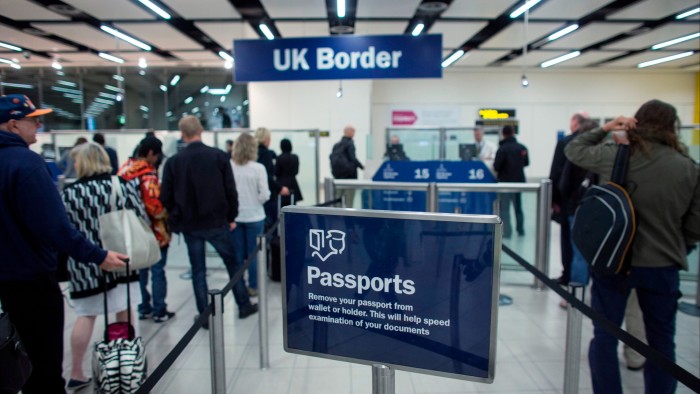Unlock the Editor’s Digest for free
Roula Khalaf, Editor of the FT, selects her favourite stories in this weekly newsletter.
The price of travel permits needed by EU and US citizens to enter the UK is set to rise from £10 to £16, the government has said, triggering warnings that the cost will damage tourism.
Since the electronic travel authorisation (ETA) scheme took effect this month, many visitors to the UK who do not require a visa have to apply for digital permission to travel to the country.
Visitors at present pay £10 for a permit that is valid for two years and allows them to take multiple journeys.
But the Home Office said the cost of a permit would rise from £10 to £16 in order to help “reduce the reliance of the migration and borders system on taxpayer funding”. The government department did not set a date for the changes.
Tourism groups and airlines hit out at the changes, saying they made the cost of visiting the UK increasingly uncompetitive in light of EU plans to charge all visitors who do not need a visa €7 for its planned travel authorisation scheme.
Richard Toomer, executive director of trade association the Tourism Alliance, said the decision to raise the charge was “staggering”.
“This is especially a kick in the teeth for our European visitors just as they are required for the first time ever to apply for advance permission to travel to the UK,” he said.
Tim Alderslade, chief executive of trade group Airlines UK, said the changes were “bitterly disappointing” but welcomed the Home Office’s decision to exempt transiting passengers who visit UK airports but do not enter the country.
Heathrow airport had warned that its position as Europe’s leading hub airport was threatened by the decision to charge transfer passengers.
Visitors from more than 50 countries including the US, Australia and Canada have needed to apply for one of the permits to enter the UK since the start of the scheme, which is loosely modelled on the US Esta programme.
The list will be expanded to include EU nationals on April 2, although Irish citizens will be exempt.



